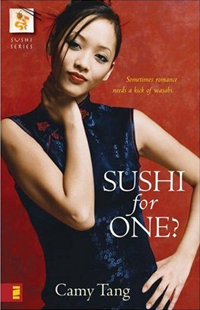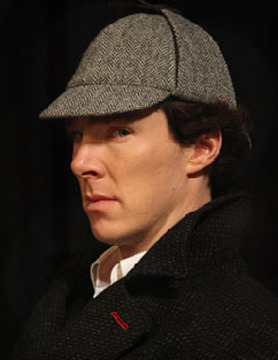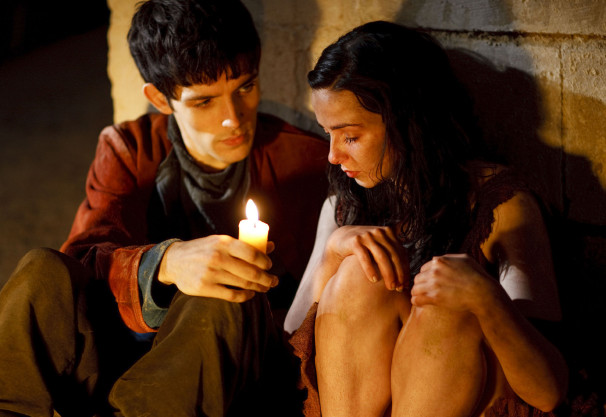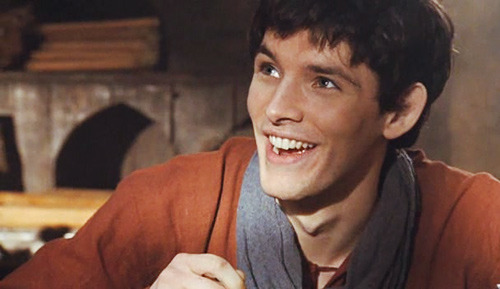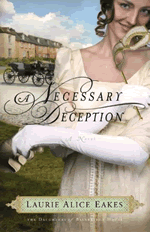Well over a year ago, I participated in the TLC tour for
Not That Kind of Girl: a humorous and spicy memoir which took me back to my formative years raised as a Pentecostal minister's daughter in a strict home and community where I had to ultimately decipher what was my faith and if it aligned with the tradition and saturation of my youth.
In a much similar way,
Holy Ghost Girl spawned an experience of reflection. A harsh one, at that, due to some extenuating circumstances I choose to keep private from this blog. Needless to say, and without further explanation, this book hit very close to home... as all books about fervent evangelical Christianity do. As is the case with the aforementioned
Not That Kind of Girl, Johnson does well at refusing to pass judgment and keeps an open-mind and a sense of tender humour as she navigates the world of the past. Her world involved non-stop travel with the tent revivalist David Terrell, to whom her mother was organist.
The music, the smell, the swell of fervent and loud prayer; the ritual of dance and speaking in tongues, the homage to one sect of the Pentecostal movement spun in 1906 are all clearly portrayed. Anecdotal, compassionate and filled with an incendiary power and wit, Johnson unravels a world of destruction, secrets and greed while still maintaining a healthy respect for the followers who practiced what they preached and lived as they should live.
Johnson, like I, seems to assert the belief that Faith is an extension of church and the rituals of organized religion and, thus, any fallacy found within its practice is borne of human frailty and limitation. With this in mind, I could read about the terrors and secrets of Terrell without feeling that the Faith I still maintain was attacked.
My father was a Pentecostal minister ( he is now a chaplain ) and he is the opposite of the minister portrayed in the book: he follows the Bible literally; but treats everyone equally and offers love before judgment; grace before condemnation. Because of this example, my experience with Pentecostalism is not as destructive as Johnson's. Nonetheless, outside of my father's church, at healing revival services, youth conventions, worship services and as the Vineyard movement swept Ontario in the early 90s, I was able to witness things that I still maintain a healthy scepticism about. The betrayal of congregation members; the inevitability of duality; the deception of what is actually a supernatural, metaphysical charge and what is borne of human excitement and euphoria all struck very close to home.
It is hard for me to write about this book because it speaks close to home: not the circumstances in the plot; but the elements of faith, of music, of prayer. Organized religion can effect children in numerous ways. For Johnson, like myself, church was merely a part of childhood. I cannot imagine my upbringing without it and stripping myself of it would mean ripping out an integral, ingrained part of my life for 30 years.
As much as Johnson's experiences were tumultuous, there is a kind of vapid loss as the tent revival craze (revivals had been a major part of Evangelical services for centuries in their own incarnations) slowed down and megachurches and television evangelism sprung up.
Johnson speaks candidly about witnessing miracles, about the historical relevance of tent revival services and about the abuse she suffered at the hands of Terrell and the troubled Sister Coleman. Terrell, a con-man, adulterer and fraud, is not painted surreptitiously as an everyman of the evangelical sect; rather someone Johnson separates from the world of true faith. She does not paint Christianity as negative; rather humans who have fallen prey to the ease of popularity, the almost mystical night-time world of spirit-filled change and the belief that they are at one with God.
I appreciate her speaking to this in a delicate manner allowing those who practice Evangelical Christianity to read her story with compassion, to click their tongues at moments where humans use God's divinity for personal goal, and yet to be able to hold her head high and respect the followers who live in a way they feel they must, are destined to, which best glorifies God in the way they know how.
I knew that this book was going to strike a chord because the Pentecostal movement is so inbred in my consciousness and a wealth of memories: both good and bad flood me whenever I read about it: read lyrics to the chorus of a familiar song, read about the fervour behind healing services, read of the mystery of speaking in tongues, of dancing in the spirit, of being filled with the Holy Spirit: all things which are a mainstay of the Pentecostal movement.... which still exists today.
What I most enjoyed about the book was how it touched on humanity and grace in what was apt to become a whirlwind circus of betrayal, ambiguity and despair. In fact, I enjoyed how under the tent, even those who leaned toward bigotry in every-day life practiced equality. The Civil Rights movement was alive and well in tent revival services: all were equal when approaching the spirit-filled mania of a service. There were violent repercussions and not all believed in the freedom of worship stayed by Terrell and his ilk; but many fought for freedom and risked their lives to support that ideal. THAT is one of the moments of true Christianity I found in the pages of this novel.
It's hard for me to write about this because it is hard to speak about something that has posed a series of conflicting emotions, of loss, of gain, of tears and safe haven; of a walk-down-memory-lane; of revisiting a hyper-intensive world that I carry; but do not completely subscribe to.
Donna Johnson recognizes something that all who are minister's kids (like myself) or missionary's kids or organist's kids (like Johnson) must learn: that there is a crucial moment in young adulthood where the ultimate decision must be made: are you going to continue to follow in your parent's faith ---with all of its glories and moments of euphoria and moments of despair and doubt--- or are you going to assess Faith on your own terms and decide what it means to you.
For people so immersed in religion at a young age; it is hard to speak to it without feeling drowned by its significance in your upbringing. To speak ill of it seems to betray my foundation; yet to colour-coat it seems to contrast the Faith I uphold now.
I guess it comes down to people. Humans are frail, humans misinterpret, humans betray....
Faith is perfection; humans are wont to fail... we cannot expect the human experience in the pursuit of God to be unfailing and unflappable because then we would be speaking to perfection ---something to which God holds alone. Johnson, like myself, still professes to be a Christian: still spends time in contemplative prayer; still strives to find Truth and God outside of the constraints of human frailty. She loves the ritual of church; but is off-put by the new "Self-Help" trend of mega-churches.
In an interview included in my review copy of the book, she notes the followers she most respects: those who store no earthly possessions, who rely on God, who help each other. It is this moment and other grace notes that keep her opinion of Faith staid from the easy temptation to wallow on its inconsistencies.
Johnson and her family had to travel day and night, restless, roaming, homeless as they ministered from State to State. I had a loving and secure home, a wonderful school life, parents who, though strict, believed in what they preached and treated others as they wanted to be treated. Infidelity and abuse were a far-cry from the fortunate childhood I had. Yet, I did identify very deeply with Johnson's story... especially when it spoke to the rituals of organized religion, of the fervour of the Pentecostal movement, at the fallacy of Christians who speak as of God; yet live in a way that completely revokes what they are preaching.
What hit VERY close to home was the tenets of Evangelism: the vernacular, the singing, the speaking in Tongues. It took me back to my childhood in a powerful way ---- it took me through my teenage years where I spent weekends in auditoriums filled with teenagers worshipping God, being slain in the Spirit, speaking in tongues--- it took me through the guilt I felt when I finally decided to leave some of my parents' Christianity behind as I tried to map through the inconsistencies and insecurities I felt to carve a Christianity of my own: borne of the love and compassion I saw ministered through preachers like my dad: while sloughing off the human frailty I witnessed in others subscribing to the same truth. The judgment, the hate, the ambiguity, the Sunday Christians, the lack of grace...
Christianity today is a multi-layered puzzlement. At its core, the Faith itself is one of charity, benevolence, Grace.... the epitome of Christ's teaching here on earth. At its worst, it sees the condemnation of the homosexual community, of women's choice: of judgment before peace and love, of instilling the fear of the Rapture with an odd calendar. This is, of course, not a white-wash of the entire community of believers; yet a nod to those who make the news. A nod to those like David Terrell whose time at the pulpit was a betrayal when you learned of the way he lived outside of the tent. Unfortunately, he is one of many who conned his way into the hearts of millions.
Not all tent revivalists are bad, not all Christian leaders are cons, not all who follow do so while betraying the very belief they so strongly pronounce.... Donna Johnson recognizes this and paints a tasteful and moving memoir about her experience. She does well not to preach, to point fingers, to universalize; rather she honours the moments of Grace she sees in her childhood despite the abuse and despair and secrets and betrayal. She recognizes that the faces she writes of are the minority, while allowing herself to revel in the blessing of Love, forgiveness and the rapture of realizing there are those who DO epitomize the workings of that which they subscribe to... unfailingly.
The most touching moment in the memoir occurs at the end: as Johnson attends a funeral--- her emotions are an onslaught of contradiction ... yet she is able to separate herself from the sins of the man now passed to watch, in jubilance, as she watches incarnations of Grace and love.
For those unfamiliar with the world of Evangelical Christianity, this is but one voice that speaks to its highs and lows: the same you would find in any religion or any gathering of humans anywhere. On a deeper note, it is a compelling memoir of involvement: of the inability to extract yourself from where you came from, how you were raised, what you learned. To defy your upbringing, is to extract a kernel of yourself ....
Johnson eloquently writes of "two worlds-- one under the tent and one outside. Each time I turned toward one, I turned away from some part of myself".
I have often felt divided as I constructed my adult faith while tweaking the experiences of my youth and forging a Christianity on my own terms due to my own appreciation, consecration, experience, reading, Biblical-immersion and yet I can no more separate myself from the experiences and religion of my youth and my parent's upbringing than I can forget who to set the table, or put my napkin in my lap, or say "please and thankyou" ---- or live without my right arm.
That's what struck me about this book. That's what was difficult to read. No matter how we feel unfulfilled by remembrances of childhood, no matter how memory preys to spring us back to the negative moments, the tears, the retribution... the more we must allow ourself to become accustomed to its formation. Johnson would never be the woman, writer, introspective surveyor she is now ---blending compassion with skepticism: rationalization with awe if she had not been a child of the tent, baptized in the rituals of Pentecostal charisma. I would not be the woman that I am had I not been taught under the billows of church: of services, conventions, learning, leading, following, singing, praying, doubting, believing, feeling, crying, feeling anger, feeling commitment, feeling betrayal and love and grace and being blessed...
Religion is a big scary world and Johnson's life in it was a big, scary one; but she is brave enough to know that that which sweeps our collective consciousness maintains two levels: the good and pure motivation borne of its purist form ( that which follows the Bible and the teachings of Christ ) and the fallacy of humankind --- to twist and serve faith as it serves them.
This duality will always exist and we need writers like Johnson to portray it while still maintaining a healthy dose of humour, of grace, of the prospect of redemption. I wish her luck as she writes more and uses her voice to expel the cult-like craze of her past while marrying her belief in the good in the world--- even the tent world.
This was a heart-wrenching book for me to read as it forced a lot of contemplation and a revisit to my past. I thank God I was separated from the sadness that framed Johnson's childhood; but nonetheless her scenes of Evangelical worship forced me to confront my own. I sometimes think that my life as a believer is made up of my finding God outside of human expectations (they are wrought with inconsistencies and the Pentecostal world is filled with regulations and standards that even the purist would be hard to attain), Johnson's book meted the write amount of reflection, bypassing judgment, offering un-deserved compassion and grace.
My thanks to
TLC for the opportunity to feature this book.
Please purchase at
amazon.com (one reviewer notes its similarity to
The Glass Castle, if that peaks your interest)
 For you Bach-loving Torontonians, the Anglican Church of the Redeemer (across from the ROM) features amazing Bach Vespers now and then. I often go and lose myself in the wonderment of this sacred religious practice. It's heavenly: especially when couched in the magnificent old church Redeemer worships in.
For you Bach-loving Torontonians, the Anglican Church of the Redeemer (across from the ROM) features amazing Bach Vespers now and then. I often go and lose myself in the wonderment of this sacred religious practice. It's heavenly: especially when couched in the magnificent old church Redeemer worships in.
